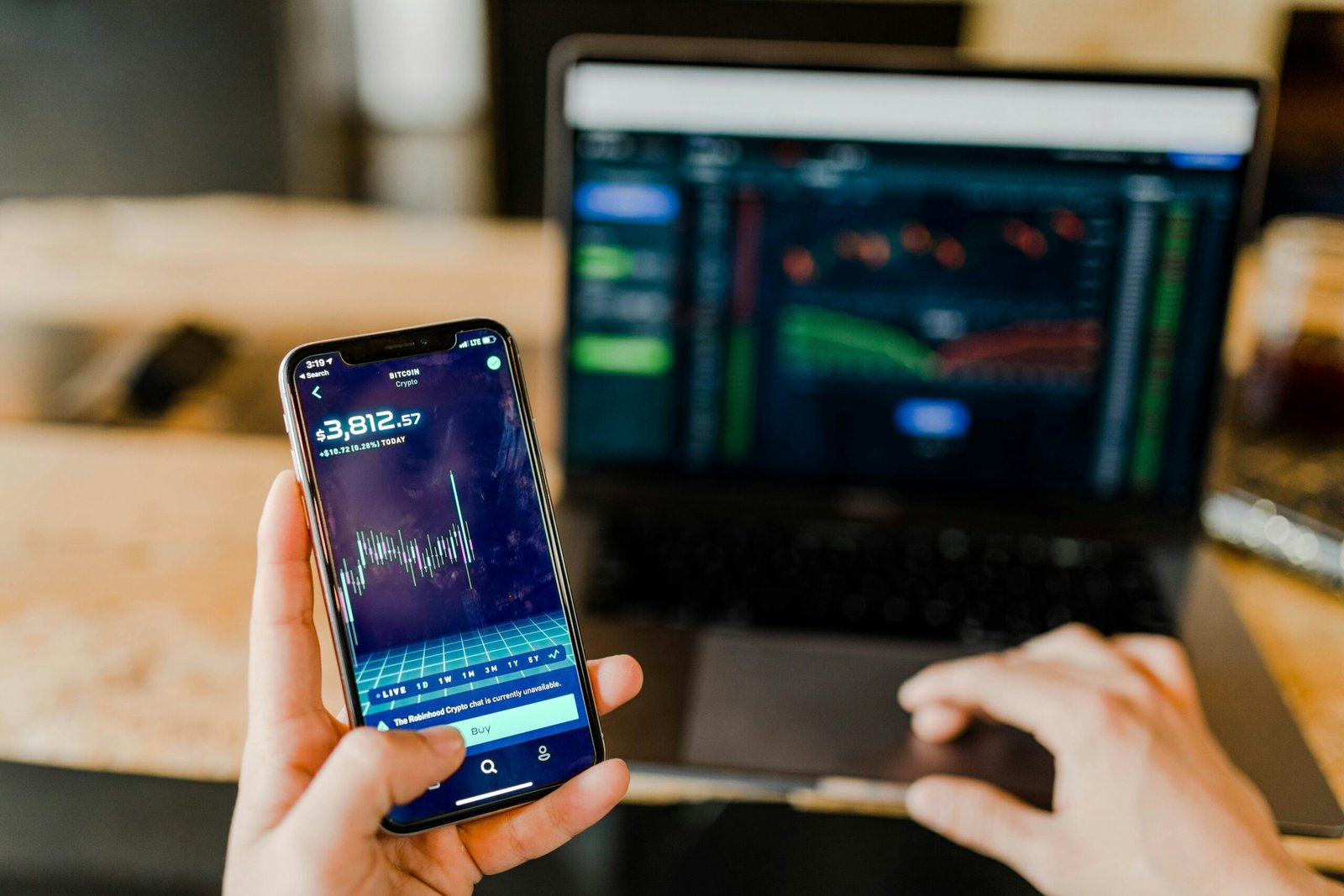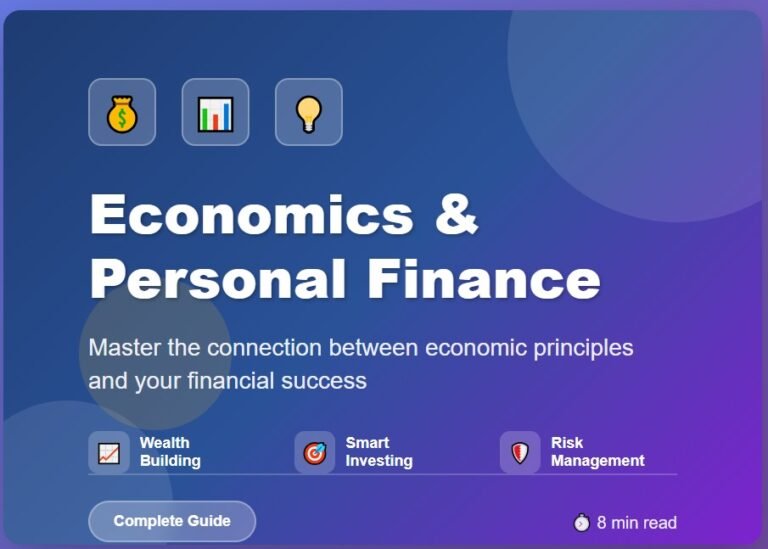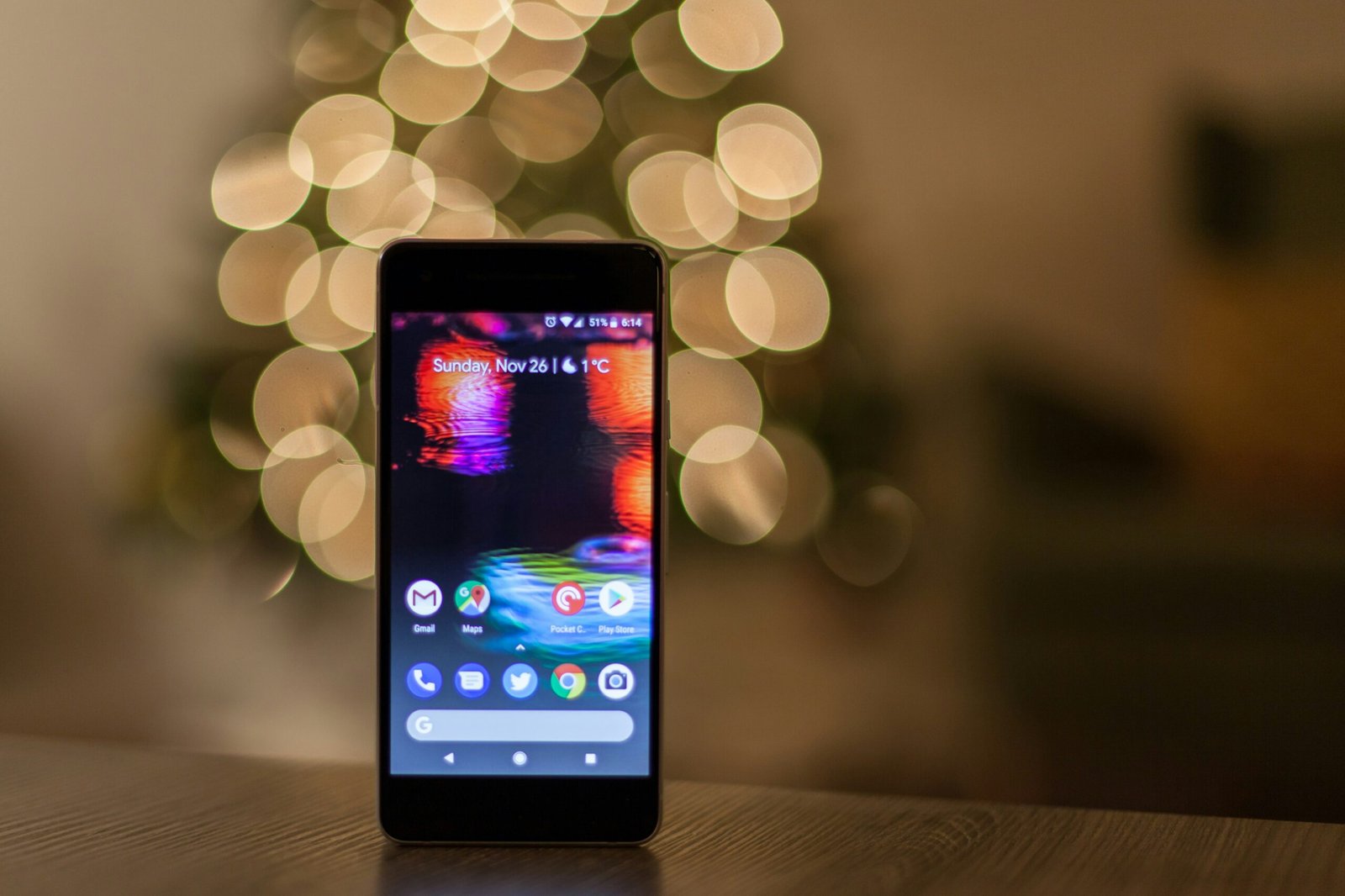Budgeting apps are indispensable tools that enable individuals to master their finances and achieve greater financial stability.
Introduction to Budgeting Apps
Budgeting apps have become essential tools for individuals seeking to manage their finances more effectively. These applications allow users to keep track of their expenses, monitor their income, and allocate their funds accordingly. By providing a clear overview of one’s financial situation, budgeting apps empower users to make informed spending decisions and set realistic savings goals.
In an increasingly digital world, the importance of budgeting apps cannot be overstated. They cater to a diverse array of financial management needs, offering features such as expense categorization, bill reminders, and financial goal setting. Many of these apps also provide visual representations of spending habits through graphs and charts, enabling users to quickly identify areas where they may be overspending or under-saving.
Using budgeting apps promotes a proactive approach to personal finance management. They encourage users to develop good financial habits by regularly inputting their transactions, helping them stay accountable for their spending choices. As a result, individuals can identify patterns in their financial behavior, which may lead to the realization of unnecessary expenditures that can be easily reduced or eliminated.
In addition to tracking spending, budgeting apps also often offer features that assist in saving for specific goals. Whether it is setting aside funds for a vacation, emergency fund, or retirement, these applications help users visualize their progress. By breaking down larger financial goals into smaller, manageable milestones, users are more likely to stay motivated and committed to their savings strategies.
Ultimately, budgeting apps serve as an invaluable resource for anyone looking to enhance their financial literacy and achieve greater control over their financial lives. With numerous free options available, embracing these digital tools is a step towards better money management.
Criteria for Selecting the Best Budget Apps

When evaluating the best free budget apps for 2024, a systematic approach is essential to ensure that users benefit from the most effective and efficient tools available. The selection criteria include several key factors that contribute significantly to the overall user experience and functionality of these applications.
First and foremost, ease of use is paramount. A budget app should have an intuitive interface that simplifies the process of setting up budgets, tracking expenses, and analyzing spending habits. Users should be able to navigate the app effortlessly, regardless of their technical proficiency.
Next, the features offered by these apps play a crucial role in their effectiveness. Comprehensive budgeting tools such as expense tracking, budget creation, and financial goal setting are essential. Additionally, functionalities like bill reminders, customizable categories, and visual reports can enhance the user’s budgeting experience. As consumers have diverse financial needs, apps that provide a variety of features to accommodate different budgeting styles are particularly valuable.
Compatibility with various devices is another critical consideration. A budget app should be accessible on multiple platforms, including smartphones, tablets, and web browsers. This versatility allows users to manage their finances on the go and from different devices, ensuring that budgeting becomes a part of their daily routine.
User reviews offer insights into how effectively the app operates in real-world scenarios. High ratings and positive feedback indicate that an app meets user expectations, while constructive criticism highlights areas for improvement. Therefore, analyzing user experiences can be a compelling factor in selecting the best budget apps.
Lastly, unique aspects that differentiate an app from others in the market can influence user preferences. These may include innovative tools, unique integrations with other financial services, or specialized support resources. By focusing on these criteria, users can confidently select the budget app that best suits their needs for 2024.
Top Free Budget Apps of 2024
As we navigate through 2024, managing personal finances has become increasingly essential, and numerous free budgeting apps can assist in tracking expenses while saving efficiently. Here is a selection of some of the best free budgeting apps available this year.
First on the list is Mint. This app has long been a frontrunner in personal finance management. Mint allows users to link their bank accounts, track spending, and set budgets easily. Its standout feature includes personalized insights that help users identify spending trends, making it a valuable tool for achieving financial goals.
Another noteworthy app is YNAB (You Need A Budget). Though primarily subscription-based, it offers a 34-day free trial. YNAB’s unique approach urges users to allocate every dollar they earn, fostering better financial habits. This budgeting philosophy encourages users to plan for future expenses, enhancing overall financial literacy. Monitoring progress through various reports further aids in maintaining budgetary discipline.
EveryDollar is also gaining traction in 2024. Developed by financial guru Dave Ramsey, the app enables users to create monthly budgets quickly and track expenses by using a user-friendly interface. EveryDollar’s goal-oriented budgeting encourages users to allocate funds purposefully while offering straightforward expense-tracking capabilities.
For those who prefer a visual approach to tracking finances, PocketGuard stands out as an excellent option. It connects to bank accounts, categorizes spending, and displays how much disposable income remains after bills and necessities. This enables users to understand their financial situation clearly, promoting a more conscious spending lifestyle.
Lastly, GoodBudget is a digital envelope budgeting system that helps users allocate their funds into different categories. This method is particularly useful for those who prefer a more hands-on approach to managing finances. GoodBudget is accessible on both mobile and desktop platforms, providing a convenient way to oversee budgets anytime.
These budgeting apps collectively offer a variety of features tailored to different financial needs, ensuring that users can find tools that suit their specific preferences and help them save more effectively.
Detailed Review of Each Budget App
In an increasingly digital landscape, budgeting apps have become essential tools for individuals seeking to manage their finances effectively. The following reviews will examine the most reputable free budget apps for 2024, emphasizing their functionalities, user interfaces, performance, and notable characteristics that are pertinent to users looking to track and save money.
First, let us consider Mint, a long-standing favorite among personal finance enthusiasts. Mint’s user-friendly interface is designed for simplicity and ease of use. The app allows users to link their bank accounts, credit cards, and bills, automatically categorizing transactions. Essential features include budgeting tools, bill tracking, and free credit score monitoring. Notably, Mint underwent an interface update recently, enhancing its visual appeal and functionality, though some users have reported glitches in the app’s performance.
Next is YNAB (You Need A Budget), which is often praised for its proactive approach to budgeting. YNAB emphasizes a unique method called “Give Every Dollar A Job,” which helps users allocate funds to specific categories. Its touchscreen-friendly design makes navigating through various sections straightforward. However, some users may find the learning curve steep, as it requires a change in habitual spending patterns. Nevertheless, its detailed reporting and goal-setting features remain its strong points.
EveryDollar is another contender, offering a straightforward budgeting framework that is ideal for beginners. Users can create monthly budgets in minutes, and its clean, simple design makes the app intuitive. EveryDollar has improved its features by introducing transaction tracking, although this remains a premium feature in the paid version. This app performs well for those who prefer to manually input expenses rather than automatically sync.
In conclusion, each of these budget applications brings a unique set of functionalities and features to the table, catering to varying financial management styles. By understanding the nuances of each app, users can select the budgeting tool that best aligns with their needs and preferences for 2024.
User Testimonials and Case Studies
In exploring the effectiveness of the best free budget apps available in 2024, real-life testimonials serve as a powerful testament to their utility in enhancing personal financial management. Many users have turned to these apps with goals ranging from reducing debt to improving their savings habits, and their experiences offer valuable insights. For instance, Emily, a 28-year-old marketing professional, reported that after using one of the leading budgeting apps, she successfully saved over $2,000 within several months. She highlighted the app’s intuitive interface, which allowed her to categorize expenses and set monthly goals easily. This helped her stay accountable and identify areas where she could cut back.
Another case study comes from Daniel, a recent college graduate who cited the budgeting app as instrumental in managing his limited income. He emphasized the importance of tracking his monthly expenses, which previously seemed overwhelming. By utilizing this app, Daniel was able to visualize his spending habits in real time and adjust his budget accordingly. This careful monitoring not only allowed him to pay off his student loans more rapidly but also enabled him to put aside $100 monthly for an emergency fund.
Furthermore, Sarah, a stay-at-home mother, shared her transformation after integrating one of the discussed apps into her routine. She noted that the app’s features, such as alerts for upcoming bills and spending thresholds, made it easier for her to prioritize essential expenses. This proactive approach to budgeting significantly reduced her family’s financial stress and aided in setting aside money for future family activities.
These testimonials illustrate that the best free budget apps for 2024 not only help users track their finances but also enable them to cultivate better financial habits. By facilitating a deeper understanding of individual spending patterns, these apps play a crucial role in users’ journeys towards improved financial health.
Common Mistakes to Avoid When Using Budget Apps
Utilizing budget apps can significantly enhance personal finance management, yet many users unintentionally undermine their efforts through common mistakes. One prevalent error is the failure to update spending regularly. Budgeting apps are most effective when data is kept current. Neglecting to input transactions can lead to a distorted view of one’s financial situation, making it difficult to track progress toward goals. To mitigate this issue, users are encouraged to set aside a few minutes daily or weekly to review and update their expenditures. This consistent practice fosters financial awareness and accountability.
Another mistake frequently observed is the lack of specific financial goals. Many users approach budgeting with a vague intention to “spend less” or “save more,” but without defined objectives, it is challenging to measure success or maintain motivation. Setting clear, achievable goals—such as saving for a vacation, paying off debt, or establishing an emergency fund—can provide users with the direction needed to remain focused on their budgeting efforts. Having a visual representation of these goals within the app can also serve as a powerful reminder of one’s aspirations.
Additionally, ignoring the budgeting app’s analysis features can be a hindrance to effective budgeting. Most apps offer various tools for tracking trends, identifying spending habits, and providing insights. Users should take full advantage of these features to gain a deeper understanding of their financial behaviors. By actively engaging with the app’s reporting functions, users can pinpoint areas for improvement and adjust their spending strategies accordingly.
Finally, users should be cautious of setting overly ambitious budgets. It is essential to create a budget that reflects realistic spending patterns. Overly restrictive budgets can result in frustration and non-compliance. A more effective approach is to allow some room for flexibility while also adhering to the broader financial goals established.
Integration with Other Financial Tools
In today’s digital landscape, effective budgeting often necessitates the use of several financial tools, which can include bank accounts, investment apps, and expense trackers. The best free budgeting apps for 2024 are designed to seamlessly integrate with these various tools, providing users a comprehensive view of their financial health. Such integration is not merely a feature; it is a fundamental aspect that significantly enhances the budgeting experience.
When budgeting apps connect with bank accounts, they allow for real-time updates on account balances and transactions, enabling users to track their spending intuitively. This connection means that every purchase is automatically recorded within the budgeting app, making it easier to categorize expenses and identify spending habits. Users benefit from this streamlined process as it reduces the manual entry of data, which can be time-consuming and prone to error.
Moreover, integrating budgeting apps with investment tools empowers users to manage their portfolios alongside their general expenditures. By having a consolidated view that includes both investments and day-to-day spending, individuals can make more informed financial decisions. This holistic perspective can aid in setting realistic savings goals, ensuring that users allocate money effectively between expenses and investment opportunities.
Expense trackers also complement budgeting apps, as they can provide detailed insights into spending patterns. Many budgeting applications are equipped with features that allow for easy importing of data from these trackers, thereby enriching the user’s financial landscape. As a result, users gain a clearer picture of their income, expenses, and potential areas for savings.
In summary, the integration capabilities of the best free budgeting apps significantly streamline the budgeting process. This interconnectedness not only saves time but also enhances the overall effectiveness of managing personal finances, enabling users to focus on achieving their financial goals efficiently.
Future Trends in Budgeting Apps
As individuals increasingly rely on technology to manage their finances, the evolution of budgeting apps continues to gain momentum. In 2024, several trends are set to shape the landscape of these applications, catering to user demands for enhanced functionality, security, and engagement. A significant trend is the integration of artificial intelligence (AI) within budgeting tools, which offers users personalized financial advice. Through machine learning algorithms, these apps analyze spending patterns and provide tailored recommendations, allowing users to optimize their budgets more effectively. This ability to present insights based on behavior marks a shift towards a more customized financial management experience.
Additionally, gamification is emerging as a popular strategy to incentivize savings. Budgeting apps are increasingly incorporating game-like features—such as challenges, rewards, and progress tracking—to motivate users to adhere to their financial goals. By turning budgeting into an interactive experience, these applications not only foster better financial habits but also make the process more enjoyable. Users are more likely to engage with their finances when they can track their progress and celebrate milestones with rewards, thereby increasing overall savings.
Moreover, as concerns regarding data privacy and security grow, budgeting apps are placing a stronger emphasis on safeguarding user information. In 2024, we can expect increased implementation of end-to-end encryption, biometric authentication, and other security measures that protect user data from unauthorized access. This dedication to security will ensure that users can confidently manage their finances without the fear of breaches. Overall, the future of budgeting apps appears promising, characterized by advancements in technology that foster user engagement and prioritize user security, paving the way for more effective financial management solutions.
Conclusion
Choosing the right budget app is essential for anyone looking to manage their finances effectively in 2024. Throughout this blog post, we have discussed several top free budgeting applications that can help you track and save money with ease. Each app offers unique features tailored to various financial needs, so it is important to consider what works best for your situation.
When selecting a budgeting app, you should first assess your financial goals. Are you looking to simply track your expenses, or do you want to set savings goals and receive notifications about your spending habits? Some apps provide comprehensive features that integrate bank accounts, whereas others may focus solely on expense tracking. Identifying your specific requirements will significantly narrow down your choices.
Usability is another important factor. Opt for an app that has an intuitive user interface and aligns with your technology proficiency. A budget app that you find confusing or difficult to navigate may hinder your budgeting efforts rather than support them. Moreover, consider the availability of customer support and user reviews, as these can give insights into the app’s reliability and performance.
A key aspect to keep in mind is the security features of the budgeting applications. Since these apps often require access to sensitive financial information, ensuring that the chosen app prioritizes data protection is crucial. Look for features like two-factor authentication and encryption to safeguard your information.
Ultimately, the best budgeting app is one that fits seamlessly into your lifestyle, empowering you to track and save effortlessly. By evaluating your financial needs, the app’s usability, and its security features, you can select a budgeting tool that helps you achieve greater financial well-being.




